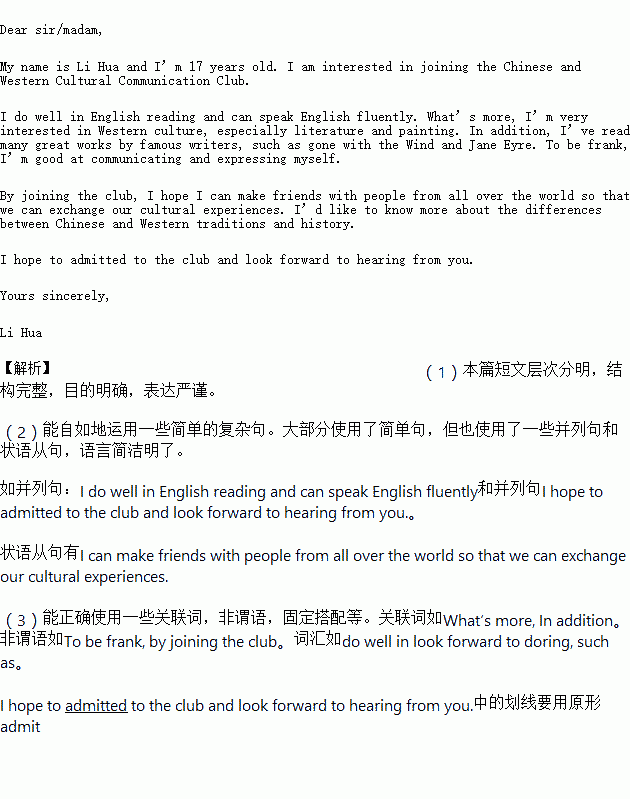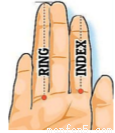题目内容
假设你是李华,正在英国学习,想参加学校的一个“中西文化交流俱乐部”,你希望成为其中的一员。请根据下列要点用英文给组织者写一封申请信:
1.个人情况:年龄,性别;
2.个人条件:英语水平,对西方文化感兴趣,善于与人交流;
3.目的:结交朋友,了解更多中西文化之间的差异。
注意:
1. 词数100左右;
2. 可以适当增加细节,以使行文连贯;
__________________________________________________________
练习册系列答案
 名校课堂系列答案
名校课堂系列答案
相关题目


 ll experienced similar annoying tricks when we were young-the brother who stole your ball and then got you into trouble by telling your parents you had hit him.But Mary and John are not humans.They're African baboons(狒狒).1.
ll experienced similar annoying tricks when we were young-the brother who stole your ball and then got you into trouble by telling your parents you had hit him.But Mary and John are not humans.They're African baboons(狒狒).1.
 B.
B. 
 D.
D. 